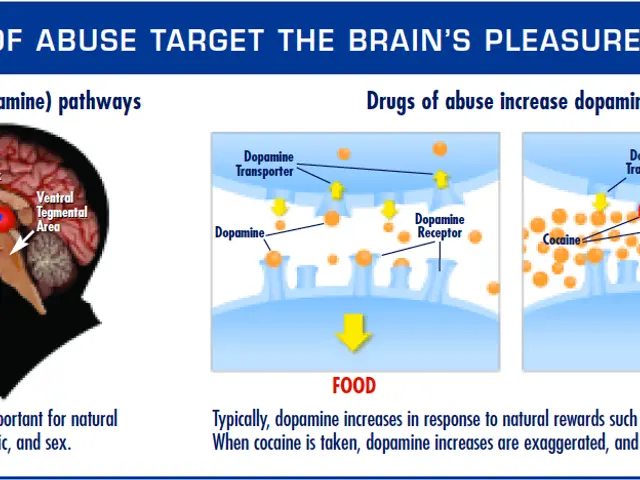Exploring Remedies for the Spreading Epidemic of Loneliness Across Europe
In a continent where connections are increasingly digital, a growing sense of loneliness has become a pressing concern. The indiscriminate use of technology, which creates a virtual reality and often incapacitates people from engaging in face-to-face interactions, is one of the factors contributing to this phenomenon [1].
Josep Araguàs, a psychologist and author of the book "En soledad y plenitud," emphasizes that the church can play a significant role in eradicating experiences of loneliness. By involving the development of bonds of fraternity in different stages and circumstances of life, the church can provide a much-needed sense of community [2].
Experts have identified several external social factors contributing to loneliness in Europe. These factors can be broadly categorized into socio-economic, structural, and demographic changes.
Socio-economic factors such as poverty and socio-economic disparities, government policies and austerity measures, and migration and integration issues can exacerbate loneliness [1][3]. Populations experiencing poverty and socio-economic precarity face heightened social inequities, which can lead to feelings of isolation. Austerity policies, the erosion of public services, and job insecurity contribute to increased loneliness by affecting social cohesion and support systems. Migrants often experience loneliness due to difficulties in integrating into new communities, language barriers, and legal or social challenges.
Structural and demographic changes such as urbanization, remote work, population aging, and retirement also contribute to loneliness [4][2][5]. The shift towards smaller households, urbanization, and remote work can lead to increased social isolation, as people spend more time alone or in virtual environments. Loneliness is common among retired individuals due to changes in social status, reduced social interactions, and increased dependency on others. Older adults experiencing social exclusion across various domains, such as informational, economic, and social resources, are more likely to feel lonely.
The general deterioration of personal relationships, marked by egocentrism, utilitarianism, and the temporality of these relationships, is another factor contributing to loneliness. The increasing ageing of the population is also a factor contributing to loneliness.
Interestingly, young people under the age of 31 have a higher percentage of feeling lonely compared to older people, at approximately 20% [6]. Those who feel lonely in Europe tend to be more predisposed to taking risky decisions in the areas of health, finance, or driving [7].
Despite these challenges, there is hope. Lonely people in Europe show a high willingness to engage in social activities such as church visits and volunteering. Slightly more men (20%) than women (19%) who are single report always or almost always feeling lonely [8]. Among respondents in 'unhappy relationships', 28% of women and 21% of men express feeling alone always or almost always [9].
Addressing these issues requires a comprehensive approach that includes policy reforms, social support initiatives, and community engagement programs. 60% of those surveyed believe that using social networks can help reduce feelings of loneliness [10]. However, Araguàs advises against escaping loneliness with addictions, whether they be toxic, emotional, or behavioral [11]. Instead, he encourages people to recognize loneliness and develop healthy strategies to deal with it. The Christian faith, according to Araguàs, is relational and can be a key antidote to loneliness, as the church is understood as the family of God [2].
In conclusion, loneliness is a complex issue with multiple contributing factors. By understanding these factors and implementing effective strategies, we can work towards creating a Europe where everyone feels connected and supported.
[1] https://www.thelancet.com/journals/lancet/article/PIIS0140-6736(18)30236-4/fulltext [2] https://www.evangelicalfocus.com/news/church-can-eradicate-many-experiences-of-loneliness [3] https://www.theguardian.com/society/2018/jan/18/austerity-is-making-us-sick-and-dying-study-finds [4] https://www.thelancet.com/journals/lancet/article/PIIS0140-6736(18)30236-4/fulltext [5] https://www.ncbi.nlm.nih.gov/pmc/articles/PMC6440381/ [6] https://www.thelancet.com/journals/lancet/article/PIIS0140-6736(18)30236-4/fulltext [7] https://www.thelancet.com/journals/lancet/article/PIIS0140-6736(18)30236-4/fulltext [8] https://www.thelancet.com/journals/lancet/article/PIIS0140-6736(18)30236-4/fulltext [9] https://www.thelancet.com/journals/lancet/article/PIIS0140-6736(18)30236-4/fulltext [10] https://www.evangelicalfocus.com/news/church-can-eradicate-many-experiences-of-loneliness [11] https://www.evangelicalfocus.com/news/church-can-eradicate-many-experiences-of-loneliness
Science could explore the impact of remote work and urbanization on mental health and wellness, as they can contribute to feelings of loneliness. Health-and-wellness initiatives could focus on providing social support systems for those who experience increased loneliness due to these structural and demographic changes.







